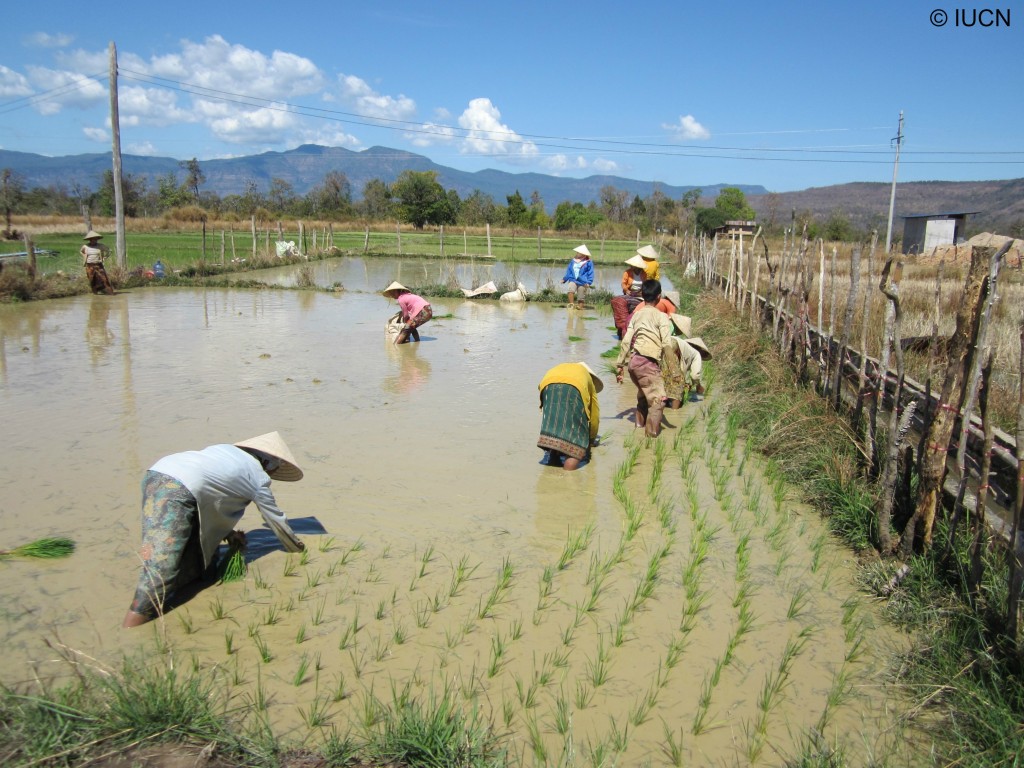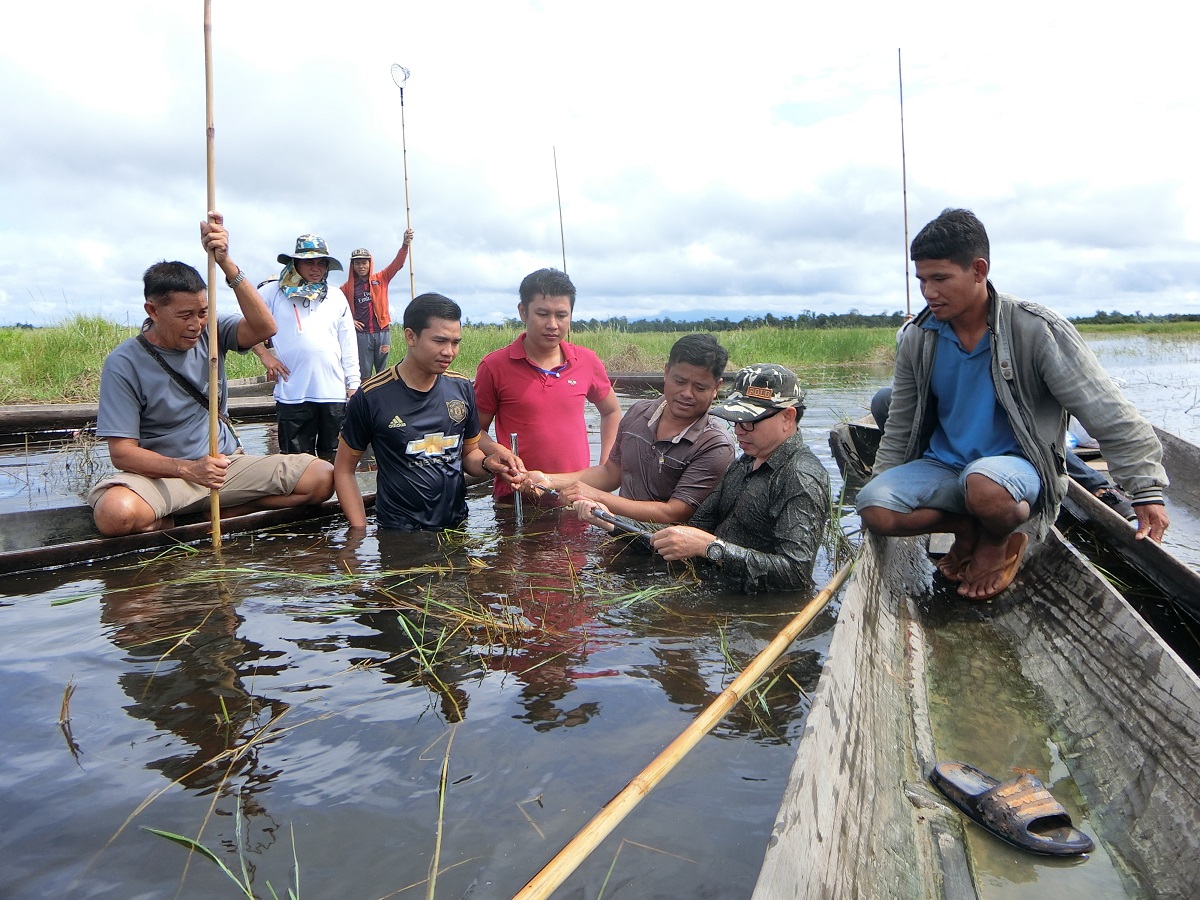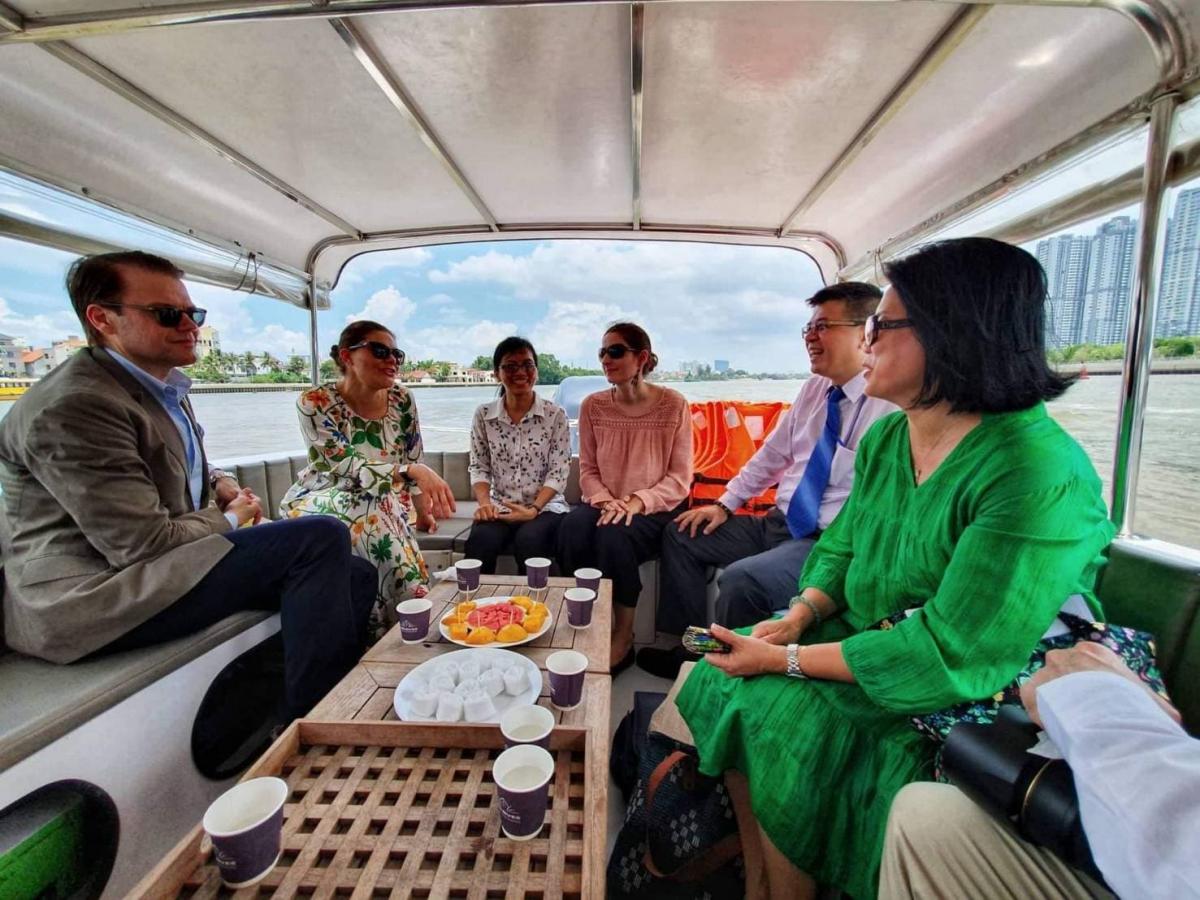Blog - A shared Mekong: towards better cooperation
The boom in hydropower development in the Mekong basin could affect food security – something IUCN is working to counter by facilitating dialogue in the region, writes Raphaël Glémet, Senior Water and Wetlands Programme Officer at IUCN Asia in his recent blog article. An excerpt from the article can be found below, including a link to the full article on the BRIDGE Asia blog website.

Photo: © IUCN
The Mekong is the river that supports the largest number of people through rice production, fisheries, and water resources. The large number of existing and planned hydroelectric dams on the Mekong and its tributaries are thought to affect fisheries, water quality, and availability, causing tensions regionally, with downstream countries fearing adverse effects.
Concerns are heightened by the fact that most fish species caught in the Mekong are migratory, and there is insufficient information on how dams affect large catfish and other species. Dams could also block the sediment flow to the Mekong delta in Viet Nam, leading to saline intrusion and a sinking of the delta itself, resulting in potential important losses in terms of rice production for the rice bowl of Asia.
Through its Building River Dialogue and Governance (BRIDGE) programme, whose regional coordinators met in Bonn recently with global coordinators from the Global Water Programme and the Environmental Law Centre, IUCN aims to improve regional cooperation so as to enable better planning for the management of 14 transboundary river basins around the world, including the Mekong.
For full article, please visit bridgeasiablog.org.
Building River Dialogue and Governance (BRIDGE) is an IUCN initiative that focuses on enhancing water governance capacities in nine trans-boundary basins in three regions across the globe. Through approaches that emphasize stakeholder learnings and consensus building, BRIDGE aims to catalyze transboundary cooperation for equitable and sustainable water resources development. BRIDGE is implemented by IUCN with the support of the Swiss Agency for Development and Cooperation. In the Mekong region, BRIDGE activities are carried out in the Sekong, Sesan and Sre Pok river basins.



